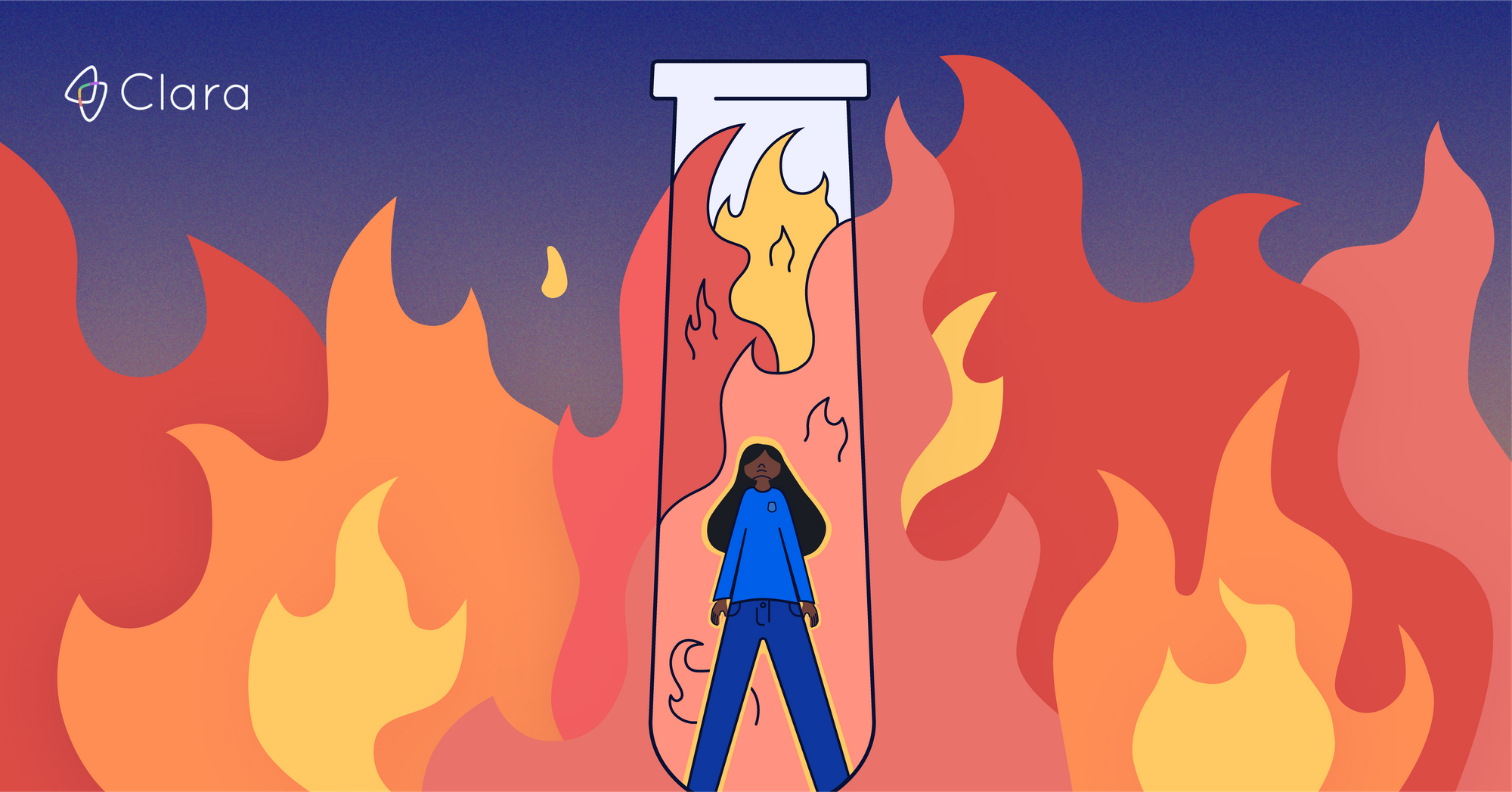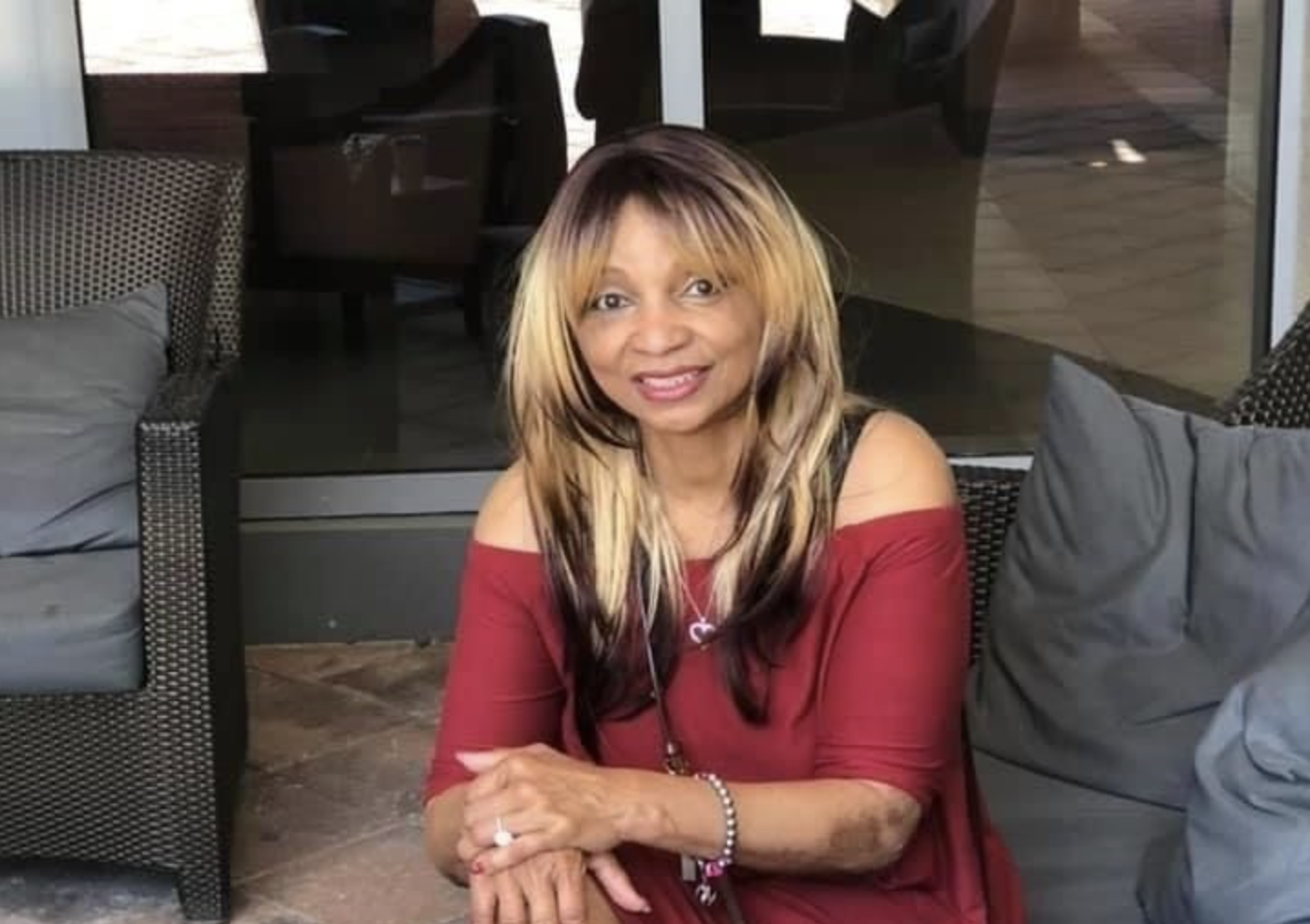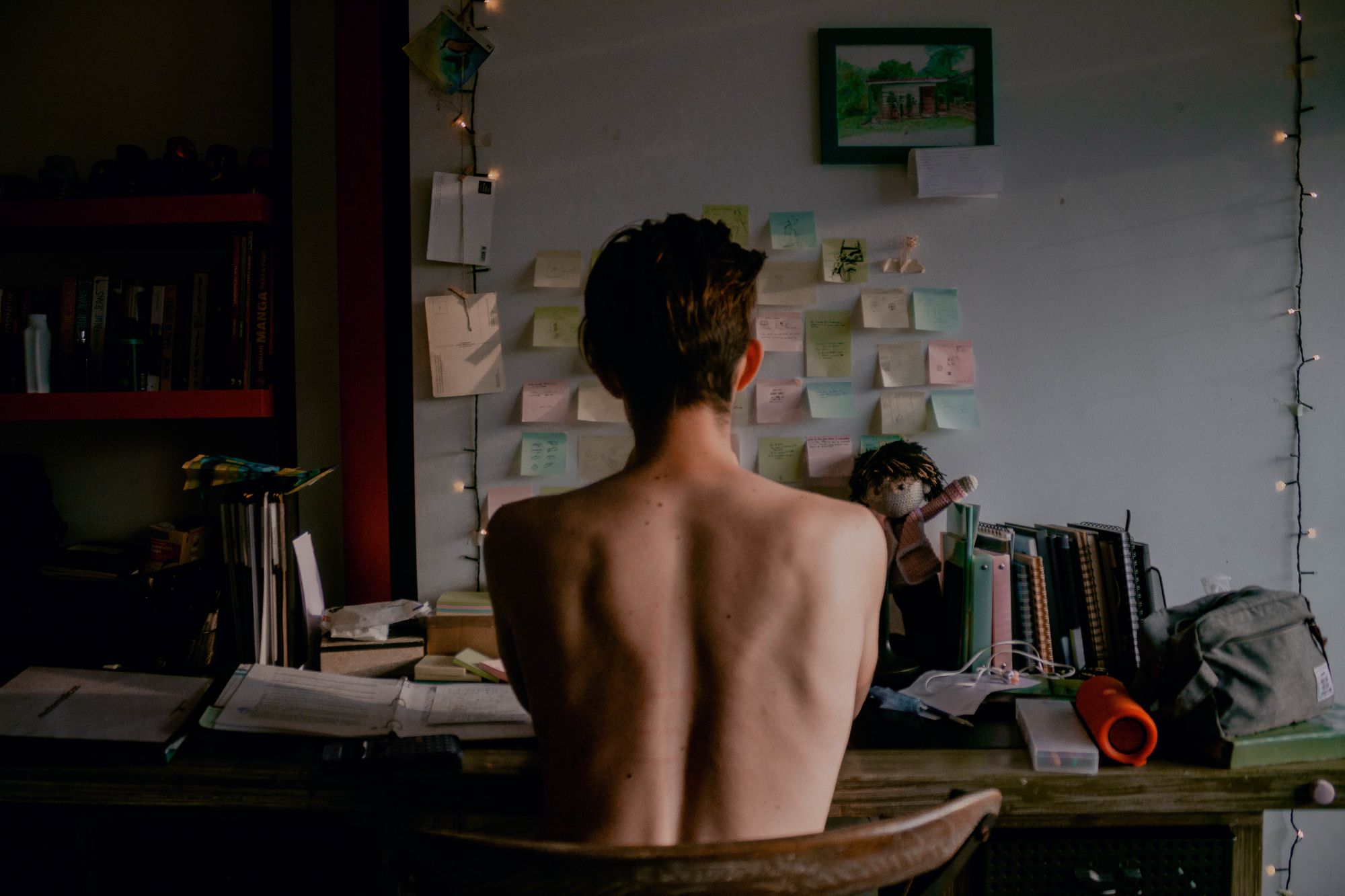Monica’s Story: A patient's experience with multiple clinical trials for a rare version of the mitochondrial disease CPEO.
Mitochondrial Myopathy: CPEO, PEO+ & KSS
Chronic Progressive External Ophthalmoplegia (CPEO) is a condition that typically onsets in adults between the ages of 18 and 40. It is mainly characterized by a progressive impairment of the muscle functions involved in eye and eyelid movement.
CPEO may affect one or both eyes, and includes symptoms such as:
- Partial or complete paralysis of the muscles that move the eye (ophthalmoplegia)
- Drooping of the eyelids (ptosis)
- Issues swallowing (dysphagia)
- Weakness of the skeletal muscles (myopathy)
Ptosis, or droopy eyelid(s) caused by CPEO, can be corrected with surgery, or with glasses that are designed to act as a crutch to lift and support the upper eyelids.
CPEO can also occur as part of other underlying conditions such as Kearns-Sayre syndrome.
In certain instances, CPEO may be linked with other (or additional) signs and symptoms, which classifies this condition as progressive external ophthalmoplegia plus, or the abbreviated version PEO+.
PEO+ can expand traditional CPEO symptoms to include all or some of these symptoms.
- Nerve damage resulting in weakness in the limbs (neuropathy)
- Nerve damage to the inner ear resulting in hearing loss (sensorineural hearing loss)
- Diminished muscle coordination (ataxia)
- Pigmentary retinopathy
Kearns-Sayre syndrome (KSS) is a neuromuscular disorder that is defined by the intersection of three factors: it’s onset in individuals younger than 20, PEO, and pigmentary retinopathy.
KSS is a mitochondrial DNA deletion syndrome, and causes issues to many organs and other body tissues, which often compound to multisystem effects. This condition is generally not inherited, and is a result of mutations in the cells, which occur after birth.
KSS is a slowly progressive disorder, and while there is no known cure, treatment is typically symptomatic and supportive.
Team Clara Interview With Monica Chulewicz
Today the team at Clara is speaking with Monica Chulewicz who is an ambassador for The United Mitochondrial Disease Foundation, and is highly active in the Mitochondrial Disease community.
In this interview, she shares her story of her lifelong battle with PEO+ and KSS, as well as her experience taking part in a clinical trial that could have been pivotal for her, but instead ended abruptly just as she was seeing positive results.
Monica noticed the first symptoms of PEO+ and KSS when she was only 11, although she’s felt its signs much earlier. Now 29, Monica’s symptoms have worsened over the years, which is synonymous with the progressive nature of this disease.
Monica: Yeah. So I have a mitochondrial disease. It's in the mitochondrial DNA. I have a single large deletion, specifically the diagnosis that I have with the mutation it could be either something called CPEO or KSS, which is Kearns-Sayre Syndrome.
The only difference is that it's kind of like a spectrum. CPEO is on one side and KSS is on the other side. It's kind of more progressed and it has the same symptoms as CPEO, but it has additional ones.
So, I've always been diagnosed with CPEO plus (CPEO+) is what they call it. I'm kind of in the middle, but my doctor thinks it's leaning more towards the Kearns-Sayre Syndrome, as well.
Lilly: Okay and how does this diagnosis impact you on a day to day basis?
Monica: So, there's the mitochondrial disease itself and then with Mito, it causes an array of secondary illnesses where I have all those cohorts to deal with. But with Mito specifically, it's basically a lot of fatigue. You tire easily, muscle weakness.
With the secondary illnesses you could have like digestive tract paralysis, or you could have dysautonomia. It's just like a wide range of things because essentially the mitochondria are in every cell of your body except red blood cells. So it has the potential to literally affect any organ system in your body.
Lilly: Wow, is there any long term outlook or long term repercussions of the condition?
Monica: Yeah, so Mito, in general, is a progressive disease, depending on what form you have. Sometimes people consider it as a life threatening illness or there's some that are more terminal than others, but in general they are a progressive disease. So I know I've had it for a very long time. Since my first noticeable symptoms were at age 11, but I definitely had it younger than that. But over the years, and I'm 29 now, over the years, it just, everything kind of piles on and the symptoms get worse. So it's just kind of imminent that it continues to get worse.
Lilly: That is not an easy diagnosis, certainly. You did join a clinical trial, is that right?
Monica: Right, yeah. In 2018, my doctor tried to enroll me into the trial that was conducted by Stealth BioTherapeutics, and there were different study sites throughout the country and it was also international. So earlier on in the trial I think Stealth was a little bit more strict on their criteria and who they were going to accept into the trial, because the trial itself was for anyone with a primary mitochondrial myopathy.
So they had diagnostic criteria that you had to meet. I think when he tried to enroll me in 2018, they needed more information and I never had a muscle biopsy, which is what they wanted. But, then in the following year at the end of March, I got a phone call that they were considering enrolling me. So I went in and then I was enrolled.
I'm trying to think - I got the phone call on April 8th. It was literally the day after my birthday, to come in, I think, that same week. So I started it, I think the 9th or the 10th or something like that. I started in April.
Lilly: Okay and that was that this year?
Monica: No last year, 2019.
Lilly: Is the trial still running?
Monica: No, at the end of December 2019, it came out that they didn’t meet their primary endpoints and then in the first week of January, I had a followup appointment with the study and they gave me the medication to go home with.. On my train ride home, they emailed me that they got notification that the trial was discontinued.
It was not that it didn't help anyone, because it really helped a lot of people, but the way that they catered it and the influence that they were trying to achieve was not necessarily met.
Lilly: Yes, we hear about that happening and unfortunately, sometimes companies have end points that are not always the most patient-centric but are dictated by the FDA.
Monica: Yeah.
Lilly: Did you personally feel like this trial was helping you at all?
Monica: Oh yeah, for sure.
So this trial, specifically, it was six months, double blind placebo and then the second trial was open label extension which was supposed to be two and a half years...but I was only on an open label from October to January, so it was about three months.
I honestly don't think I was on the actual drug during the double blind trial period. I wasn't getting the same side effects as I was in double blind as I was in open label. But as far as benefits go, it really did help me pretty quickly. I'd say within like two weeks or so, I started noticing my strength getting better.
I'm a very weak person in general and even walking up a flight of stairs is very difficult for me. At work there's a basement that I have part of my work area in, so I have to use a flight of stairs and even my coworkers and my manager say, "How are you walking up a flight of stairs right now without stopping?" Normally I need to stop every few steps or I'm very slow the whole way up but just in that first week and a half or two weeks, my strength got a lot better.
My energy was definitely impacted. I was a lot more energetic. I didn't need to nap as much. I wasn't sleeping as much either, cause normally I'll need like 12 hours of sleep.
And then more benefits started to happen as it progressed. I also have a lot of weakness in my torso, so if I'm laying down I can't physically get up without rolling over and pushing myself up. I can't do a sit up essentially, but with the trial, I was actually able to get up on my own. I didn't need anyone. If I was at a doctor's office or whatever, I'm getting a procedure done or something, I didn't need the doctor to help me get up. I was able to do it on my own.
Lilly: Wow.
Monica: Yeah and I haven't been able to do that in years, even when I was in high school, I wasn't really able to do a sit up.
It was just benefits like that, as far as my weakness and energy. These benefits weren't just for me, because I have friends who were on this trial too, with the same mutation that I have, and I have pigmentary retinopathy, which means that my retinas are causing my eyesight to decline and I have a lot of night blindness.
I started the open label part of the trial, in October. I want to say by November, maybe right after Thanksgiving, I noticed that I was able to finally see better at night.
So the progressive symptom I had with the pigmentary retinopathy, that was essentially going to keep getting worse, was actually getting reversed. And I wasn't the only one that actually had that benefit.
Lilly: I have to imagine it must've been incredibly difficult for you to hear that the trial was being discontinued, given that you were seemingly doing so well on the medication.
Monica: Right, yeah. It was.. It was devastating not just for me, but just the whole community as a whole, because everyone was relying on it...
We don't really have a treatment. We don't have any kind of drugs for Mitochondrial diseases, only supplements or symptom control and stuff like that, but there's nothing that's targeting specifically the mitochondria.
Lilly: Right so do you know, and it's okay if you don't have the answer to this, but do you know what the primary endpoints were for the trial?
Monica: So I know when we were doing the double blind part. We had a symptom questionnaire and it was about fatigue, , muscle weakness and energy and I know, they had this only in double blind, but there was a six-minute walk test. They were comparing if we're able to walk faster essentially, in that sense too. I can't remember exactly what end points specifically, but I know it was mainly just kind of like a muscle weakness.
[Editor: After some background research we’ve determined the primary endpoints for both trials.
First trials primary endpoints:
Primary Outcome Measures :
(1) Change in distance walked on the six minute walk test (6MWT)
(2) Change in total fatigue score on the on the Primary Mitochondrial Myopathy Symptom Assessment (PMMSA)
Second trials primary endpoint:
Primary Outcome Measures :
(1) Incidence of adverse events - Assessing long-term safety and tolerability through collection of adverse events]
Lilly: So it sounds like that had improved for you and it had improved for others, but they were saying that it still didn’t meet the primary end points and unfortunately, the data wasn't strong enough.
Monica: Yeah.
Lilly: And how is the company communicating this to you? Were they communicative?It sounds like you were notified on your way home from one of your appointments! Was there any additional information beyond what was shared at that point?
Monica: No, not necessarily. I mean, I wasn't communicating, per se, with Stealth BioTherapeutics. It was my neurologist who did a lot of the research. He's the one that was doing the study at the site that I was at in New York. Different hospital sites were having their own research, so I had communication obviously with him and with the study coordinators. One of the study coordinators reached out to me on my way home, but I never really got anything from the company itself.
Lilly: Have they completely discontinued it or are they going to try to run another trial?
Monica: I mean, I know that they were considering it. I'm not sure at what point that is, right now, because they would have to start and reevaluate the end points and everything.
I'm not sure if they were hoping to, but it's not a guarantee. I don't know what the status is right now. I haven't seen things since January.
Lilly: And so what was your experience like while you were in the trial?
Monica: Oh, it was great. I mean the study coordinators were wonderful. Even if you needed to reach out to them for anything outside of your appointment, they were always willing and able to do that. And it was my neurologist, so I'm obviously always in contact with him too, but the study itself, I didn't have any problems.
It was done at Columbia, which is convenient for me cause that's where all my doctors are. So if I had a doctor's appointment, I would schedule the study visit for the same day. But the study itself, I mean, I had no complaints over it. Everything was done well.
Lilly: That's good and how did you find out about the study? Was it from your neurologist?
Monica: Yeah.
Lilly: Are there any other clinical trials running? Have you looked into that?
Monica: There aren't any for my mutation or that I would qualify for.
Lilly: When you decided to enter into the study, what were your thoughts around it? Because I know that for a lot of people, when they think about clinical trials, one of their first thoughts is often that they don't want to be a “guinea pig”. Or think “I'm concerned about taking something that's kind of experimental”. What were your thoughts around that?
Monica: Well, I've been sick for a very long time and it's coming on 10 years now that I have this diagnosis, even though I've had it a lot longer than that.
When I was first diagnosed, I didn't really consider anything about clinical trials and in the beginning of the whole experience of being ill and everything, I felt that I was a guinea pig. But this was way before clinical trials.
So once a clinical trial came along, I was actually very hopeful about it. I was willing, I didn't mind. I didn't feel like I was a guinea pig or anything and I was glad that I was able to experience something first hand that could be, potentially, something very pivotal in the care of Mitochondrial disease.
Lilly: Yeah, that's an amazing outlook. My heart breaks to hear that it didn't meet its endpoints.
I mean, I can imagine that it's really devastating, especially when you felt like you had something that was working. So I'm really hopeful. I hope that they decide to pick it back up. What a shame...
You were saying how you wouldn't qualify for some of these other trials that are out there because of your mutation, and you almost didn't really qualify for this trial so do you feel like these trials right now are too restrictive in terms of the eligibility criteria?
Do you feel like this is the case for a lot of people in your community? Or is it more just your own experience?
Monica: I think that the trial that I was in, specifically, I think when they were first starting out, they may have done too narrow of a criteria that they wanted for accepting patients.
But as far as other trials, even though there is a lot of symptom overlap for the mitochondrial disease from one person to another, there are a lot of differences too.
I know there's a trial being done right now in Israel for a mutation that's similar to mine called Pearson Syndrome. I forget what the trial name is, but I know that something like that would eventually, potentially help patients with Kearns-Sayre Syndrome, which would impact me.
But there are other ones as well. I think there are trials for other mutations, which I wouldn't qualify for at all because I don't have those mutations, specifically. So there are some mutations that are specifically just your eyes too, like LHON. It's just, they have these very narrow criteria for those, but that's because they're very specialized.
The trial that I was in was specifically for general primary mitochondrial myopathies. So it could have been my mutation or could have been a different kind of mutation, but as long as it was a myopathy.
Lilly: You're very knowledgeable about so many trials that are happening. How do you keep up with all of this?
Monica: I mean, I'm pretty involved with the whole mitochondrial disease community. I'm an ambassador for the UMDF (United Mitochondrial Disease Foundation). So I'm involved in that sense too. Whenever I see my neurologist, every time I see him, he always asks, "Are you interested in this or that or whatever?"
So even if I'm not directly affected by it, I feel he'll send me to a research study. I've done a few of those already and I don't know. I just like being involved in something that's such a huge part of my life that I'd rather be more absorbed into the community than not be aware of what's going on.
Lilly: Yeah. Based on your experience, looking for trials and your experience of participating in one, do you have any advice for companies or researchers in the way that they design their trials? You know, anything that they should take into consideration? As a patient who's participated, what would you say to researchers and companies?
Monica: I think making a broader criteria for accepting patients into a trial and even with end points and things like that too.
Obviously you're not going to know completely, before you start a trial if someone's going to benefit from something or not. But I think, maybe, thinking of more of a wide range of possible benefits, because even from my personal perspective, they didn't…
I don't know if they knew that it was going to help people with their vision, cause it was primarily designed for muscle weakness, but I'm not sure if they even knew to begin with that. Maybe, making a wider set of criteria to not be very narrow about it.
Lilly: Yeah, that's great advice and I really appreciate you sharing that.
I want to pause for a moment and give David the opportunity to jump in and ask questions if he has any.
David: Thank you, Lilly, and thank you so much, Monica, this has been really, really great information.
So I really just had one question. As Lilly mentioned earlier, I work directly with a lot of patients and one thing that I have noticed while working with patients who are trying to get connected to clinical trials is that they usually have to work with a different site that isn't their typical clinic and, or, work with a different doctor.
My question is if this previous study that you participated in was running, but you had to work with a different doctor, would that have changed whether or not you participated? And would that have shifted your comfort level of working with a different doctor?
Monica: You mean if it wasn’t a doctor I'm familiar with?
David: Yes.
Monica: I don't know. I mean, I obviously trust my doctor.
I've seen him for 10 years now, but I don't know. I mean, I don't think that would really make a difference for me.
I did feel comfortable and everything, but when it came to this kind of trial and the area where I am in my life with this diagnosis, I'm honestly willing to do anything at this point.
David: Got it, got it. Thank you so much. That was pretty much it for me. Thank you.
Lilly: Thanks David for that question. You know, Monica, this has been so, so helpful and I really appreciate you taking the time to share your experience with us.
I am disappointed to hear that you weren't able to continue on the medication and I certainly hope that they're able to revive the trial in some capacity and, or that another company comes out with something that works for you.
Please do let us know, at Clara, if we can ever be of help to you.
David and our colleague, Jose are part of our patient support team and they're always able to walk you through and help you search for trials to keep you up to speed on ones that could be a fit.
So definitely feel free to reach out if there's ever anything that we can do to support you through that process.
Monica: Thank you.
Current Mitochondrial Disease Clinical Trials
CPEO
- Nicotinamide Riboside and Mitochondrial BioGenisis - Cambridge, United Kingdom
KSS
- Inherited Retinal Degenerative Disease Registry - Columbia, Maryland, United States
Mitochondrial Disorders/Diseases
- North American Mitochondrial Disease Consortium Patient Registry and Biorepository - United States & Canada
- A Phase Ia/Ib, SAD and MAD Study of of KL1333 in Healthy Subjects and Patients With Primary Mitochondrial Disease - Leeds, West Yorkshire, United Kingdom
What Clara Does
Clara health was established to help patients match with relevant clinical trials & research studies. We believe that all patients should have the power to access the most advanced healthcare available and our goal is to make this process as seamless as possible.
Want to see what Clara can do for you?
- Sign up for ClaraHealth (FREE)
- Instantly filter through over 50,000 clinical trials to find the studies that are a fit for you.
- If you’d like a helping hand, we can walk you through the process of finding and applying for clinical trials.
For more information on clinical trials, please refer to the links below:






